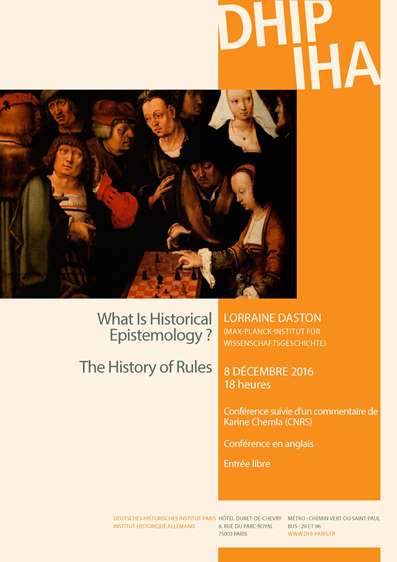
Vortrag von Lorraine Daston (Max-Planck-Institut für Wissenschaftsgeschichte), What Is Historical Epistemology? The History of Rules
Kommentar: Karine Chemla (CNRS)
Vortrag auf Englisch.
Rules – in the form of everything from traffic regulations and government directives to etiquette manuals and parliamentary procedures – structure almost every human interaction. Increasing use of computers has intensified a trend that began in the eighteenth-century of ever more, ever more stringent rules for ever more domains of public and private life. We moderns cannot live without rules. But we also cannot live with them, at least not comfortably. We chafe at their complexity, their inflexibility, their inefficiency, their sheer prolixity. Many of the fault lines that run through the landscape of modern thought oppose rules to some other elusive desideratum, such as interpretation, judgment, creativity, discretion, or simple common sense.
These are characteristically modern oppositions. Premodern rules, for the over two millennia spanning Greco-Roman Antiquity through the European Enlightenment, built experience and discretion into rules; words for »rule« and »pattern« (or »paradigm«) were used as synonyms in several major European languages. Reconstructing the history of the premodern rule can help explain the paradoxes generated by modern rules.
